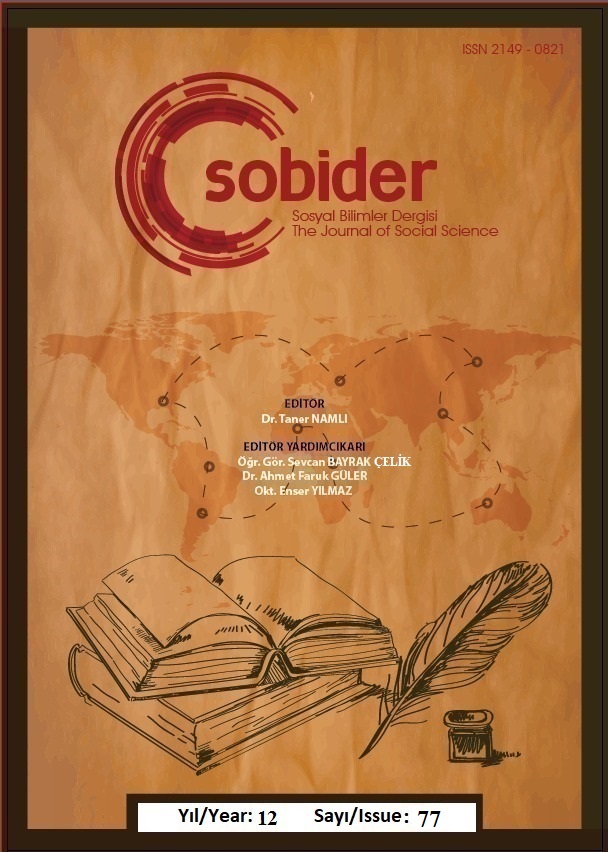Author :
Abstract
Bu makalede, Platon’un Timaeus eserinde mousikē’nin, insan ruhunun yaratılışındaki yeri ve kozmik düzenle olan bağı bağlamında üstlendiği metafizik ve ontolojik işlev incelenmiştir. Mousikē, Platonik kozmolojide yalnızca duyusal düzeyde bir sanat değil, aynı zamanda psişenin kozmik düzenle olan içsel bağını yeniden kuran bir paideia aracı olarak ele alınmaktadır. Timaeus’ta Demiurgos’un evreni rasyonel oranlara ve matematiksel düzenliliklere göre inşa ettiği anlatımı, göksel kürelerin devinimleriyle mousikē arasında kurulan yapısal analojiler üzerinden değerlendirilmiştir. Bu çerçevede mousikē, ritim ve harmonia aracılığıyla, insan psişesinin bedenle birleşme sürecinde karşılaştığı düzensizlikleri aşmasına olanak tanıyan bir taksis işlevi görmektedir. Makale, ruhun ölümsüz doğasının yaratılış süreciyle başlayan ve yıldızlara yerleştirilmesiyle devam eden kozmik serüvenini, müziğin düzenleyici gücü bağlamında yeniden okumaktadır. Mousikē, bu bağlamda yalnızca bedensel hazlara hitap eden bir ifade biçimi değil, psişeyi noetik kökenine yönlendiren bir epistrophē vasıtası olarak değerlendirilmiştir. Platon’un evreni ve ruhu aynı orantısal ilkelerle yapılandırdığı düşüncesi temel alınarak, mousikē’nin bu ontolojik paralelliği temsil etme ve yeniden kurma potansiyeli detaylı biçimde ele alınmıştır.
Keywords
Abstract
This article examines the metaphysical and ontological role that mousikē assumes in Plato’s Timaeus with regard to its part in the creation of the human soul and its connection to the cosmic order. In Platonic cosmology, mousikē is treated not merely as an art confined to the sensory level, but also as an instrument of paideia that re-establishes the soul’s inward bond with the cosmic order. The account in the Timaeus of how the Demiurge constructs the universe according to rational proportions and mathematical regularities is assessed through the structural analogies drawn between the movements of the celestial spheres and mousikē. Within this framework, by means of rhythm and harmonia, mousikē performs a taxis function that enables the human psyche to overcome the disorders encountered in its process of union with the body. The article offers a fresh reading of the soul’s cosmic journey—beginning with its creation as an immortal nature and continuing through its placement among the stars—in light of music’s regulative power. In this context, mousikē is considered not simply an expressive form appealing to bodily pleasures, but as a means of epistrophē that directs the psyche back to its noetic source. Drawing on the premise that Plato structures both the universe and the soul according to identical proportional principles, the article explores in detail mousikē’s potential to represent and reinstate this ontological parallelism.





